
Social Skills Programs
2024
ABOUT
Our Social Skills Groups are best suited to young people on the autism spectrum or those with similar characteristics who are having difficulties making and keeping friends. We accept participants with and without a diagnosis.
Our Social Skills Groups focus on teaching and supporting neurodivergent young people to learn the skills of making and keeping friends, while drawing from evidence-based frameworks and programs to teach social, communication and emotional awareness skills to children and teens.
The group context provides regular opportunities for young people to learn and practise skills in authentic social settings, with same-aged peers. To maximise outcomes and ensure we are making a difference, our Social Skills Groups also include outcome monitoring, progress reports, and regular caregiver training.
Our sessions are intentionally play and game based, as research into social skills training for young people on the autism spectrum indicates that they learn best in naturalistic settings through modelling, practice and through play (Charlop et al., 2018;
Tahmores, 2011); and of course, learning is so much more motivating when we're having fun!
Through a range of fun games and activities, the facilitators target competencies such as:
- two-way conversation
- sharing and turn-taking
- dealing with frustration
- being a good sport
- conversation skills
- perspective-taking
- friendship
- teamwork & negotiation
- social problem solving
- social and self awareness
- dealing with unwanted social interactions
- emotional recognition
- self-management
Frequently Asked Questions
Who runs the groups?
Our Social Skills Groups are delivered by qualified professionals with experience teaching neurodivergent young people. These are Special Education Teachers, allied health professionals or psychologists. Please read the ‘About’ section of this website to learn about your child’s group facilitator.
Why involve caregivers?
Our Social Skills Groups provide caregivers with regular opportunities to learn strategies we are implementing in the sessions. This is so caregivers can help their child generalise skills by coaching them in real-life settings at home and school.
In 2021, the NDIA released its 'Consultation Paper: Interventions for children on the autism spectrum'. The paper outlined that, 'In 2021, the NDIA released its 'Consultation Paper: Interventions for children on the autism spectrum'. The paper outlined that, 'Research supports the inclusion of parent-training in intervention programs for young people on the autism spectrum, and that caregiver involvement in an intervention had a similar, and at times greater effect on child outcomes compared to interventions delivered by clinical practitioners alone" (Disability National Insurance Scheme, p.9, 2021).
Are these groups a good fit for my young person?
We do our best to find a ‘right fit’ groups for your young person before we confirm enrolments. Please keep in mind that these are group-based interventions and have a sequence of skills and content to cover. Therefore, our social skills groups may not be suitable for young people with an intellectual disability or those requiring individualised support (e.g. significant challenges with communication, self-care, regulation or behaviour). We will discuss your young person’s support needs with you during our intake process.
Do you have other groups besides Social Skills Programs?
Yes! We also deliver Social Groups where young people can connect with peers who share common interests such as Art/Craft, Pokémon, Dungeons and Dragons, Technology, and more. While these groups may naturally foster social development, they do not include explicit teaching or social coaching for participants and their caregivers. The priority of our Social Groups is to provide safe spaces for like-minded individuals to make connections through shared interests. Click here for more information.
Do Social Skills groups try to 'change' young people?
NO!! Our approach to all our groups and services affirms that all brains and people are unique and divergent in their own right, and we celebrate that it is this very diversity that makes our world colourful and whole. Our Social Skills Groups are not about changing the participants' unique strengths, interests, or ways of interacting. They are about supporting motivated young people and their caregivers to make connections with like-minded people, and build skills to interact within their social world with greater comfort, connectedness and confidence... and to have a whole lot of fun along the way!
Can I use my NDIS funding?
Groups may be claimable for self or plan-managed NDIS participants. Please email for further information.
Early Primary

Girls & Boys Groups
Social Skills Group: Grades 4 & 5
Facilitator: Fiona Goodall
Group Assistant: Michelle Vanzella
2024 DETAILS
Boys' Group: Wed afternoons, term time
Girls' Group: Thurs afternoons, term time
Time: 1.30pm to 3pm
Places available for 2024
Girls Group: FULL
Boys' Group: FULL
Note: Our choice of scheduling during school hours is intentional. Based on our experience, younger participants tend to be less tired and more focused at this time, ensuring better outcomes for our primary-aged children.
Need more information? Email: fiona@makingconnectionstoowoomba.com.au
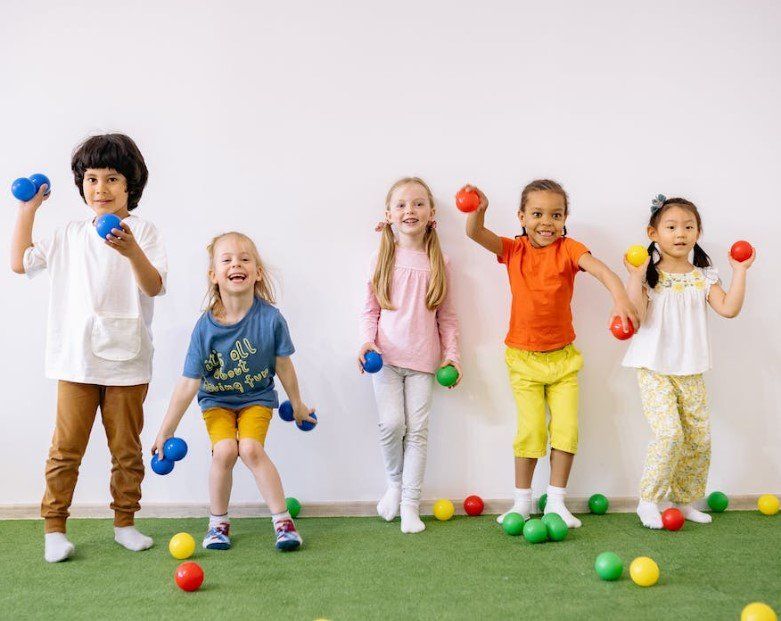
Social Motor Group
**NEW GROUP for Grades 2-4!**
The young people we see typically want to make and keep friends. Most have made many attempts to participate in games at school or in social settings with peers of the same age. However, success can be inconsistent, often due to a lack of practice, exposure, know-how, or motor skills necessary for successful engagement. Similarly, social interactions can pose additional challenges for those still navigating the social dynamics of the playground.
In response, our Social Motor Group adopts a two-fold approach. Firstly, participants will engage in activities aimed at developing both fine and gross motor skills while exposing them to the rules and repeated practice of typical age-related games encountered in school and social settings. Secondly, through fun games and activities, this will also provide our facilitator opportunities to teach and socially coach skills for developing positive relationships, all within in a naturalistic, group-based environment.
Parental Involvement:
We believe in the power of parent partnerships. As a part of this group, caregivers will receive practical tips so they can help the children generalise the skills in the real world, beyond the group sessions.
Please note:
While Chelsea is an Occupational Therapist (OT), it’s important to understand that this is a group-based, social-motor program. Strategies will be tailored to meet the needs of the group, with a focus on helping children learn skills and develop confidence to play age-appropriate games with same-aged peers.
It is not individualised Occupational Therapy nor a replacement for one-on-one OT support. If your child is seeing an OT or you are currently seeking individualised support, please continue to do so.
If you have questions, we are happy to can coordinate a phone call with your current OT to discuss how our group program can complement individualised therapy, in a group-based setting.
2024 DETAILS
Facilitator: Chelsea Hasted
Assistant: Kay Folker
Day: Tuesday afternoons, term time
Time: 3.45-5.15pm
Maximum 6: *TAKING NEW ENROLMENTS*
Need more information? Email: fiona@makingconnectionstoowoomba.com.au
Upper Primary & Teens

Grades 6 to 9
*NEW GROUP STARTING!*
Background
Research estimates that up to 95% of people on the autism spectrum experience sensory processing differences, so much so that sensory processing dysfunction has been added to the diagnostic criteria for autism (Kojovic et al., 2019). However, recognising and understanding sensory processing challenges, let alone managing them, can be a complex and daunting task. When left unchecked or misunderstood, sensory processing challenges can lead to unwanted outcomes such as dysregulation, anxiety, and even difficulties with social interactions (Kojovic et al., 2019).
About Making Sensory Connections
Led by our experienced Occupational Therapist, this group will explore the eight senses and the essential role they play in our everyday life.
This is a supportive, group-based environment where participants can connect over shared experiences, while learning to navigate their unique sensory processing profiles through fun activities, discussions, and take-home resources. The group will have a heavy craft component so would be suited to neurodivergent tweens and teens who would like to explore ways to manage their unique sensory processing profiles, while having fun and getting creative!
Our goal is to equip participants with personalised strategies to manage their own sensory preferences, so they can engage in their world with greater ease, confidence and comfort.
Parent Involvement
As a part of the ‘Making Sensory Connections’ group, we will hold two caregiver sessions per term (end and beginning of term). Caregivers will learn about sensory processing differences and receive practical tips to help their young person generalise skills into real world contexts.
Group Details
Day: Friday afternoons term time
Time: 3.45pm to 5.15pm
Group size: 6-8 participants
Availability: *TAKING ENROLMENTS NOW*
Need more information? Email: fiona@makingconnectionstoowoomba.com.au

Grades 6-9
Led by our Occupational Therapist and accredited Rock & Water facilitator, the Rock and Water program is an evidence-based program which has shown efficacy for reducing bullying and depressive feelings, and increasing self-esteem, self-regulation, confidence and social acceptance (Reitz, Mertens, Londen & Dekovic, 2019).
This is a supportive, group-based environment tailored towards neurodivergent girls in Grades 7 to 9. Participants can connect over shared experiences and gain insight by learning practical skills through the exercises and reflective conversations so they can engage in their world with greater safety, and confidence.
Topics include:
Rock - Participants learn to be strong and assertive in their actions and decisions.
Water - Participants learn to be flexible in their thinking, empathetic towards others, and learning when it helps to ‘go with the flow’.
Balance - Finding a balance between being strong and assertive (rock) and being flexible and empathetic (water) in different situations.
Body Awareness - Through physical exercises and movements, participants develop a better understanding of their body and how to use it effectively.
Breathing - Participants learn breathing techniques to help them calm down, focus, and manage emotions.
Boundaries - The program teaches participants how to set and respect personal boundaries, as well as how to assert themselves appropriately.
Resilience - By developing physical and mental strength, the program helps participants to become more resilient in the face of challenges and setbacks.
Social/Communication Skills - The program provides opportunities to develop skills such as such as communication, cooperation, and conflict resolution.
While the group involves physical activities, many of which have origins in martial arts, the group is accessible to a range of fitness levels.
Group Details
Day: Monday afternoons term time
Time: 3.45pm to 5.15pm
Group size: 6-8 participants
Availability: *TAKING ENROLMENTS NOW*
Need more information, including pricing and dates? Email: fiona@makingconnectionstoowoomba.com.au
You can also click here to read more about the Rock and Water program:
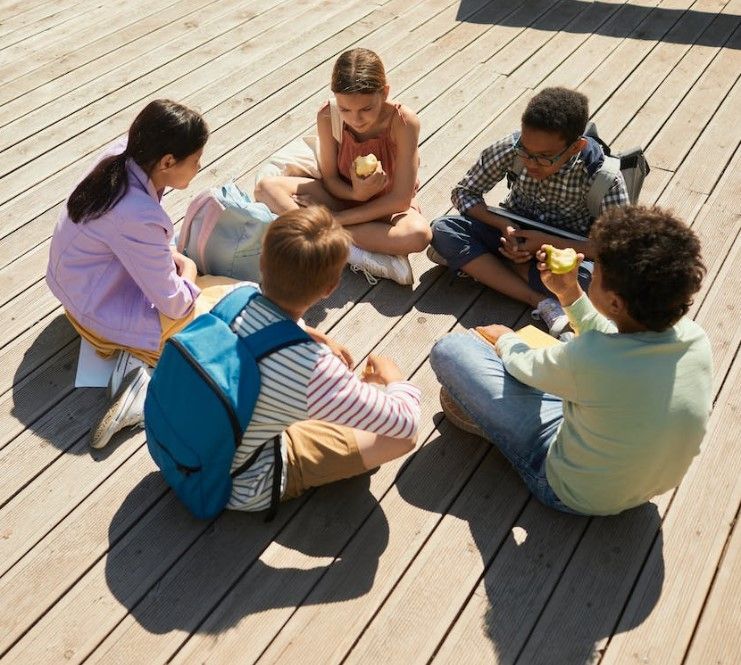
Boys & Girls Group
Social Skills Group: Grades 5 & 7
Facilitator: Fiona Goodall
2024 DETAILS
Boys' Group: Monday afternoons, term time
Girls' Group: * pending (yet to be confirmed)
Time: 3.45pm to 5.15pm
Maximum 6: Limited places available
Need more information? Email:
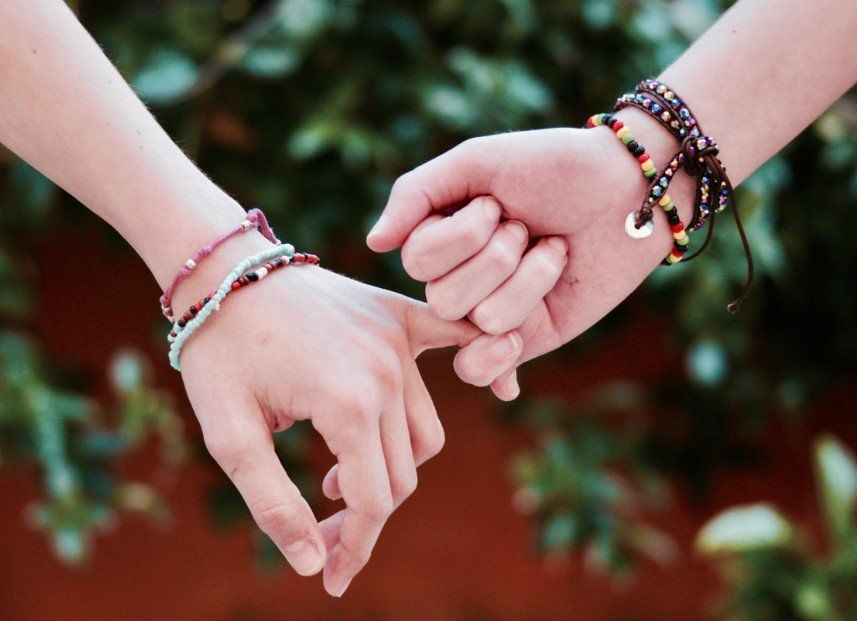
Boys & Girls Group
Social Skills Group: Grades 5-7
Facilitator: Fiona Goodall
2024 DETAILS
Boys' Group: Tues afternoons, term time
Girls' Group: Wed afternoons, term time
Time: 3.45pm to 5.15pm
Places available (max 6):
Girls' Group - 2 places for 2024
Boys' Group - 1 place for 2024
Need more information? Email: fiona@makingconnectionstoowoomba.com.au
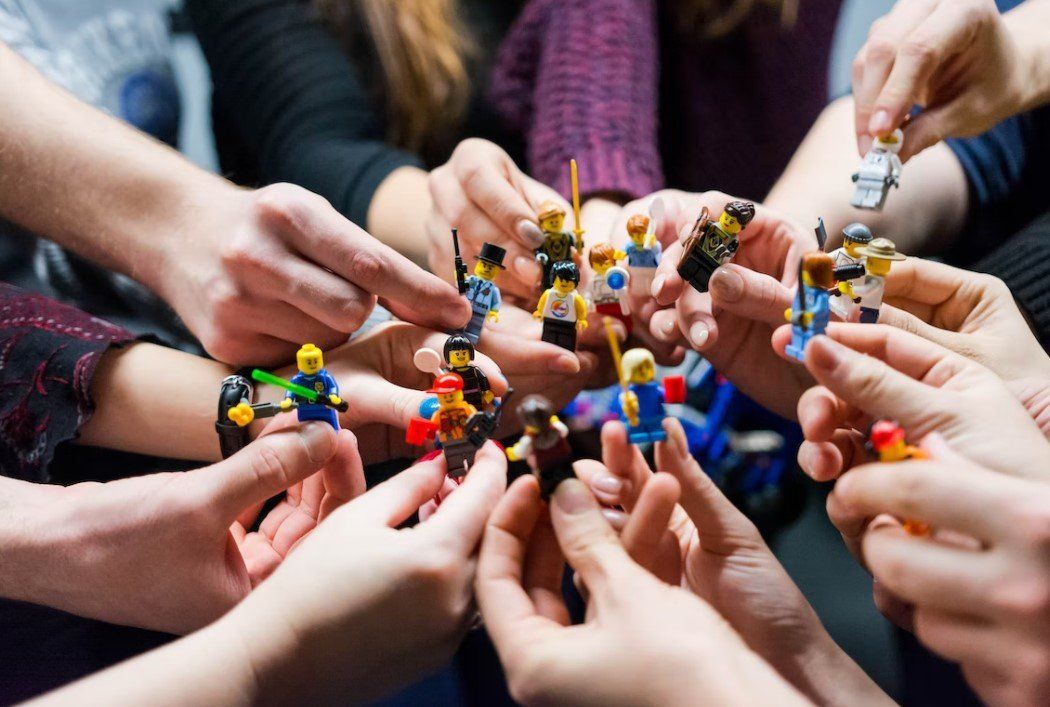
Grade 5-7
Making ConneXions Group
LEGO-Based Therapy
*STARTING TERM 3*
Facilitated by our Occupational Therapy who is a certified facilitator of LEGO® Based Therapy, the Making ConneXions group is designed to teach, coach, and promote social communication and social interaction skills in children who may have trouble with friendships or difficulties socialising with same-aged peers.
The group is tailored towards children on the autism spectrum as LEGO is a highly organised, systematic and predictable toy. Using LEGO as a therapy medium is about using the children’s common interest of LEGO as a conduit to having the confidence to develop skills they find harder, such as social communication and social imagination.
This type of social skills training can be motivating for children on the autism spectrum as it removes the unpredictable and ever-changing concepts that can occur during free play. Consequently, the predictability offered during LEGO-Based Therapy can help many children feel calmer, more regulated and more engaged during play.
Click here for more information about LEGO Based Therapy.
Group Details
Day: To be advised
Time: 3.45pm to 5.15pm
Group size: 4 participants
Availability: *ENROLMENTS OPEN*
Need more information? Email: fiona@makingconnectionstoowoomba.com.au
Disclaimer: LEGO®, SERIOUS PLAY®, IMAGINOPEDIATM, the Minifigure and the Brick and Knob configurations are trademarks of the LEGO® group, which does not sponsor, authorise or endorse therapy and/or website.
PEERS® for Teens
Social Skills Program for
14-18 yrs and Young Adults

Program for the Education and Enrichment of Relational Skills
*NEXT GROUP STARTING Term 3 2024!*
PEERS® is UCLA's highly acclaimed social skills program for teens between 14-18 years of age, and Young Adults aged 18-30 years of age.
Navigating the social world is complex, especially in adolescence. From playdates and schoolyard games to get-togethers and conversations, the shift is challenging. For young people on the autism spectrum, with ADHD or anxiety disorders, difficulties in social contexts can cause distress related to peer rejection or neglect, and lead to social avoidance. Without intervention, teens who struggle to make and keep friends typically lack quality connections, which can lead to lifelong social struggles and isolation.
Early intervention, like UCLA's PEERS® program, is powerful. It uses peer-mediated techniques to build friendship skills and includes caregiver training for ongoing support. This parent involvement component is considered 'gold standard' for any social skills training. In fact, in 2021, the NDIA released its 'Consultation Paper: Interventions for children on the autism spectrum'. The paper outlined that, 'Research supports the inclusion of parent-training in intervention programs for young people on the autism spectrum, and that caregiver involvement in an intervention had a similar, and at times greater effect on child outcomes compared to interventions delivered by clinical practitioners alone" (Disability National Insurance Scheme, p.9, 2021).
DETAILS FOR TERMS 3 & 4
Day: Thursdays
Time: 4pm to 5.30pm
Dates
Parent Session: 11th July via Zoom
Term 3 Dates: 18th July to 5th September
(8 sessions)
Term 4 Dates: 3rd October to 7th November
(6 sessions)
For costs, dates and other details email: fiona@makingconnectionstoowoomba.com.au
Testimonal
"The PEERS for Teens program was invaluable for daughter. We both learnt skills to develop quality relationships and how to survive difficult social situations. I wish I had access to it sooner. "
[Making Connections Toowoomba Parent, Nov 2023)
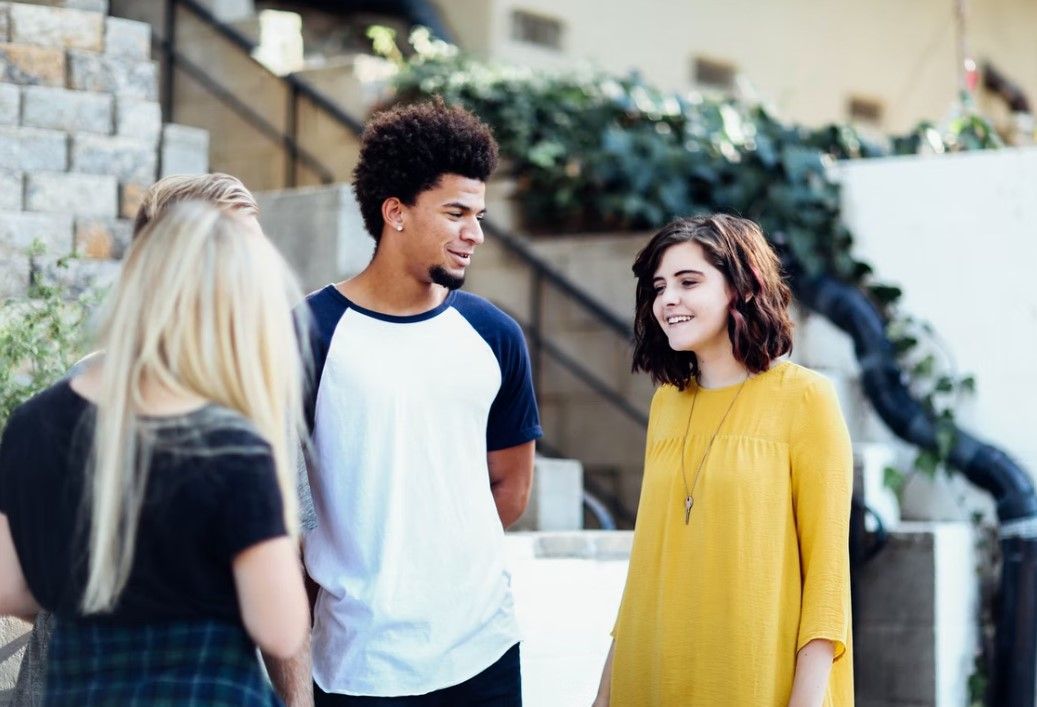
About PEERS
The PEERS® for Teens program is one of the only evidence-based interventions focusing on social skills for teens and young adults with autism spectrum disorder. It is a 14-week parent-assisted program designed to help motivated teens learn how to make and keep friends. Participants benefit from interactive weekly classes, which provide the opportunity to learn skills by following concrete steps, practise new skills during the session, and then again at home with the support of a key caregiver.
Homework, reviews, and fun activities enhance teen learning. Parent coaching runs alongside, extending support and guidance. This ensures caregivers can help teens broaden social networks and provide feedback during assignments.
During sessions, teens and at least one caregiver attend concurrently. Teens learn key skills, while caregivers join separate sessions, discovering how to support their teens throughout and after the program. At least one caregiver's attendance is mandatory with the teen.
For costs, dates and other details email:
makingconnectionstoowoomba@gmail.com
Testimonal
"My daughter used to just sit at home all day on her computer or phone while not at school, now she is out a lot more and interacting with family and friends more easily than before. Thank you so much."
[Making Connections Toowoomba Parent, May 2023)
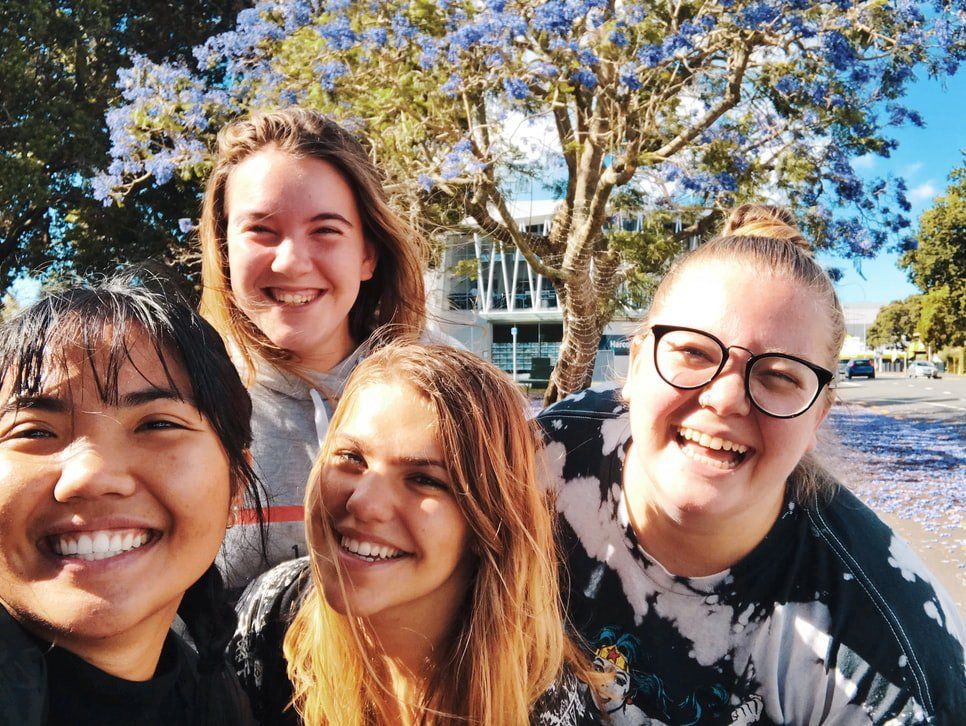
What We'll Cover
- How to use appropriate conversational skills
- How to find common interests by trading information
- How to use humour appropriately
- How to enter and exit peer conversations
- How to handle rejection, teasing, and bullying
- How to be a good host during get-togethers
- How to choose appropriate friends
- How to be a good sport
- How to handle arguments and disagreements
- How to deal with peer pressure
Testimonal
"I just want to thank you both for not just 'running' such a fabulous program, but also tell you how much I appreciate the sensitivity with which you ran it. It was just so refreshing to know that we could attend the course without worrying about the frame of mind we were in, becuase of 'life'. Many people have commented on the fact that our son seems to have 'come out of his shell'. I have no doubt this was because of PEERS for Teens."
[Making Connections Toowoomba Parent, Nov 2022)
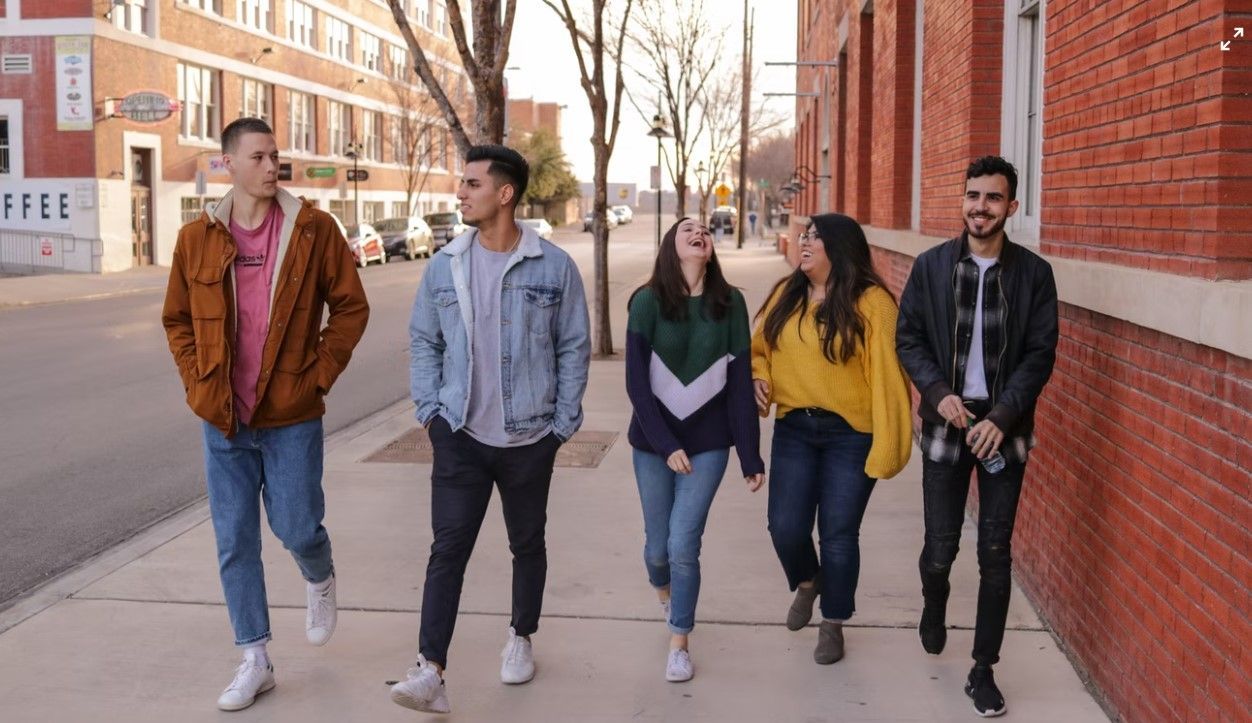
The program includes:
- Parent Information Session
- Pre-Post Program surveys and results
- Teen group sessions - 14 x 90-minute weekly structured group sessions focussing on a specific social skill, followed by role plays and activities to compliment learning
- Caregiver support sessions - 14 x 90-minute weekly structured caregiver sessions that run simultaneously to teen sessions. These sessions focus on reviewing home tasks, administering handouts and providing feedback on how caregivers can coach their teens socially
- Handouts & Resource Folder
- Certificate upon completion of the program
- Graduation party celebration
- Summary Report after completion of the program
Testimonal
"The PEERS course has been a game changer for my son and myself. It has enabled my son to be more confident in his interactions with others and also to motivate him to join social activities outside his comfort zone of school. It has really helped me to break down interactions between my son and his peers, so that we may talk more about areas that work well for him and areas he needs more suport in. We are so pleased we were a part of the PEERS for Teens program."
[Making Connections Toowoomba Parent, May 2023)
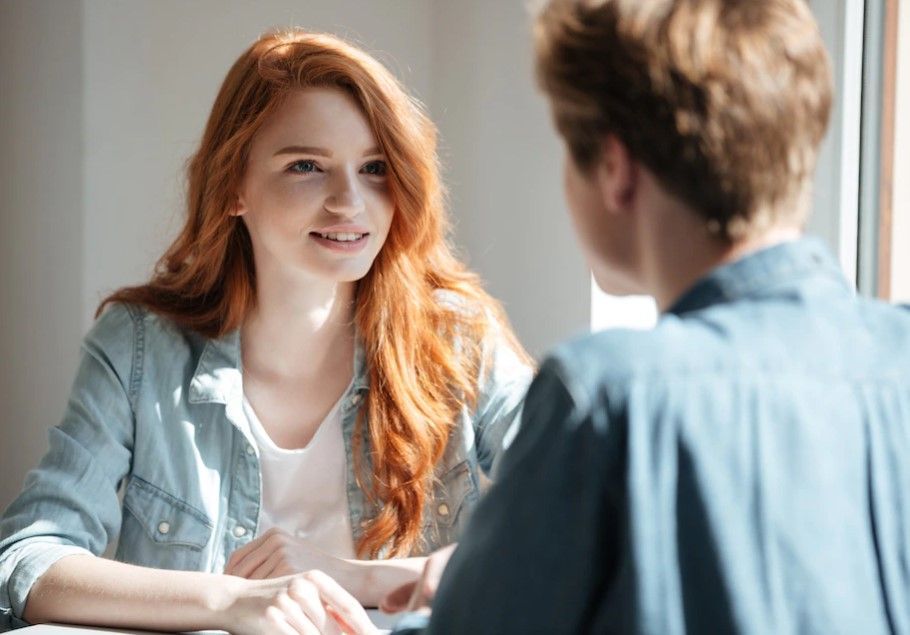
Is this a good fit?
So that all participants have the best opportunity to benefit from the program, teens must meet certain participant criteria. These include:
- Have friendship problems and/or difficulties socialising with same-aged peers
- Aged between 14 and 18 years of age
- Within the average to above range for cognition and language
- Emotional, behavioural and psychological stability
- Teens must be interested in attending and agree to participate voluntarily. Please speak with your teen first.
- Teens and their caregiver/s must attend consistently
Testimonal
"Having completed the course has given me the wording to use with my teen so we are on the same page. I do not think I could have supported her as well as I have if I did not participate. Through the PEERS program we have not only gained knowledge but a common language we can use with our teen to support her with making and maintaining friendships. The 14 weeks was a commitment, but definitely worth it."
[Making Connections Toowoomba Parent, May 2023)

Click these links for extensive research
Research Publications on PEERS®
www.semel.ucla.edu/peers/research
Parent perspective of PEERS®
https://childmind.org/about-us/our-impact/year-end-2022/how-ava-learned-to-live-the-way-she-wants
Testimonial
"The Making Connections Team provide a fantastic program for parents and teens. It was very informative and a pleasure to participate, for both of us. The skills my teen has learned and experienced will stay with him and be beneficial as he progresses through his life. Thank you."
[Making Connections Toowoomba Parent, Nov 2023)

‘During social skills groups, our son has enjoyed meeting new people and learning new strategies. He trying so hard not to give up when faced with a challenge – definitely an improvement in such a short amount of time’.
10 year old boy
17-year-old teen
‘We are seeing more personal growth since attending the group, and with the time he spends with you, than ever before. Thank you!’.
14 year old teen
FabuFit
Dear Fiona, You have shown me that it is okay to feel mad and sad if I don’t use it as an excuse or to hurt somebody’s feelings. You have showed me social skills I never thought I needed. Coming here is an amazing experience. Although I have learned many skills, the favourite part of this group is the friends I have made on the way. You are the best.’
Written by an 11 year old from the Girls’ Group:
YesSuits
Contact Us.
We’d love to hear from you.
Making Connections Toowoomba
Lawrence St
Toowoomba QLD 4350